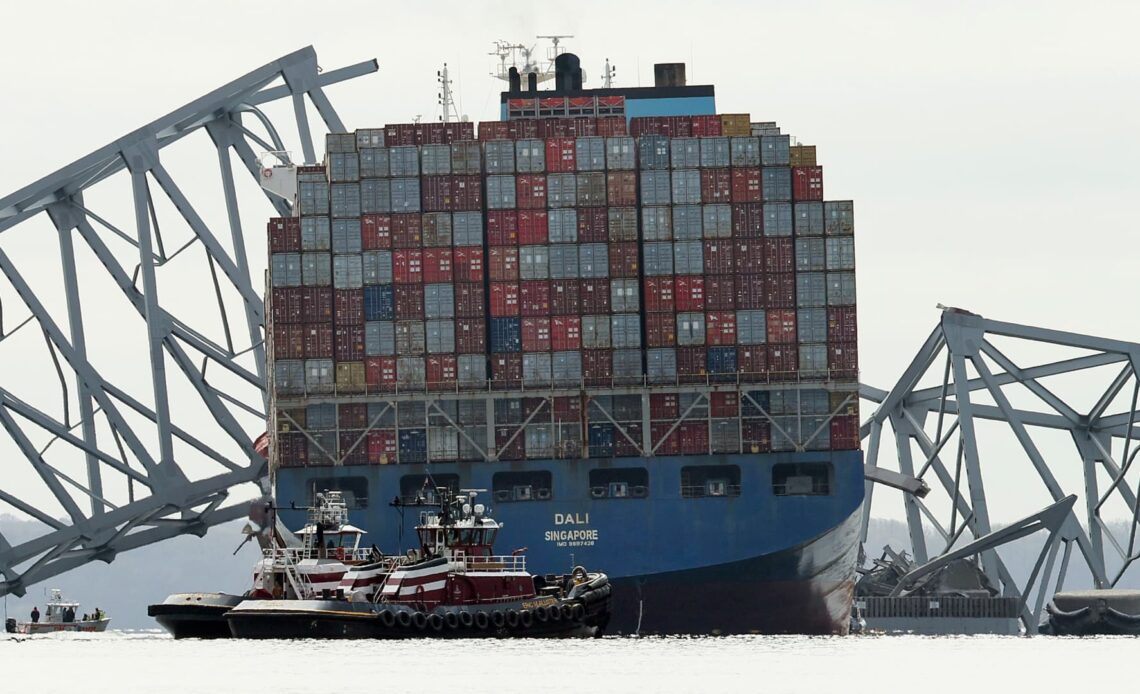The cargo ship Dali sits in the water after running into and collapsing the Francis Scott Key Bridge on March 26, 2024 in Baltimore, Maryland.
Kevin Dietsch | Getty Images
Engineers in Maryland on Saturday began lifting a piece of Francis Scott Key Bridge out of the waterway in Baltimore, the first step in a long process to reopen the city’s shipping port.
“I cannot stress enough how important today and the first movement of this bridge and the wreckage is,” said Gov. Wes Moore at a Saturday press conference. “The complexity of this cannot be overstated.”
On early Tuesday morning, the Key Bridge collapsed due to a container ship colliding into one of its pillars, leaving several people missing, six of whom the U.S. Coast Guard has presumed are dead.
“We are never going to lose sight of the human aspect of this crisis,” Baltimore Mayor Brandon Scott said Saturday.
In the days since the collapse, the Port of Baltimore, the 11th-largest port in the U.S., has been non-operational until further notice, forcing shipping companies to divert to other ports.
Government officials on the federal, state and municipal levels have mobilized their teams to start trying to bring the port back online. President Joe Biden is set to visit the city next week and has committed to the federal government paying for the full cost of the recovery and reconstruction of the bridge.
To execute the first lift of the bridge on Saturday, engineers cut a piece of the bridge to make it manageable for their crane. Once the piece is cut, engineers will attach straps to it, rig it and lift it onto a barge to be transported out of the waterway.
If successful, this process could be replicated for other parts of the bridge to clear a passageway for some transportation to resume, both for more vessels to assist in the recovery of the bridge site and possibly for some commercial shipping.
“Once we are able to get a channel reopen, it can potentially be reused for commercial assets also, but we’ve got to get it clear first and that’s what we’re working on,” said U.S. Coast Guard official Shannon Gilreath.
Economists say that the Baltimore port shutdown likely will not have any major impacts on the macroeconomy, but it is still a major disruption that complicates shipping supply chains.
“This is not just about Maryland. This is about our nation’s economy,” said Gov. Moore. “Our economy depends on the Port of Baltimore and the Port of Baltimore depends on vessel traffic.”
Click Here to Read the Full Original Article at Top News and Analysis (pro)…


